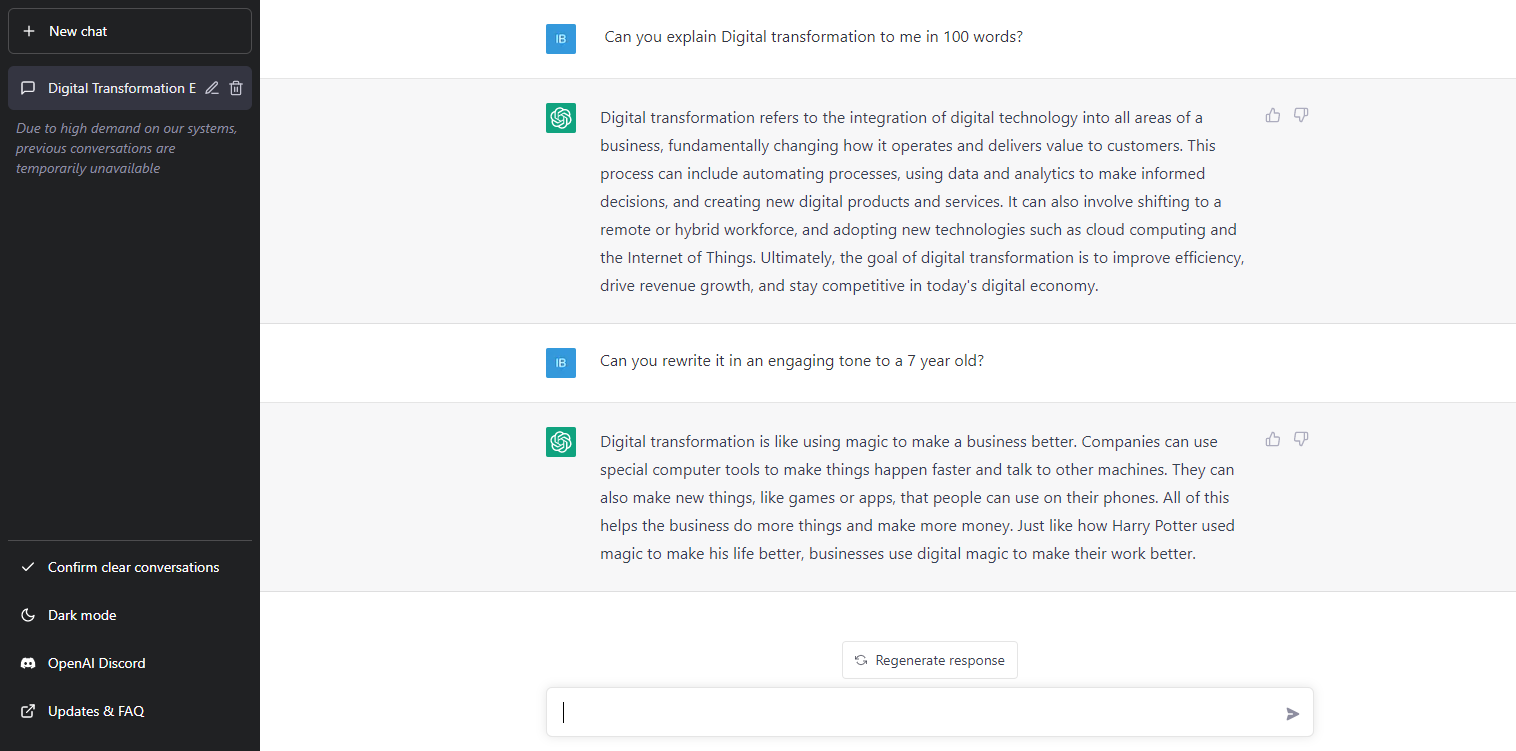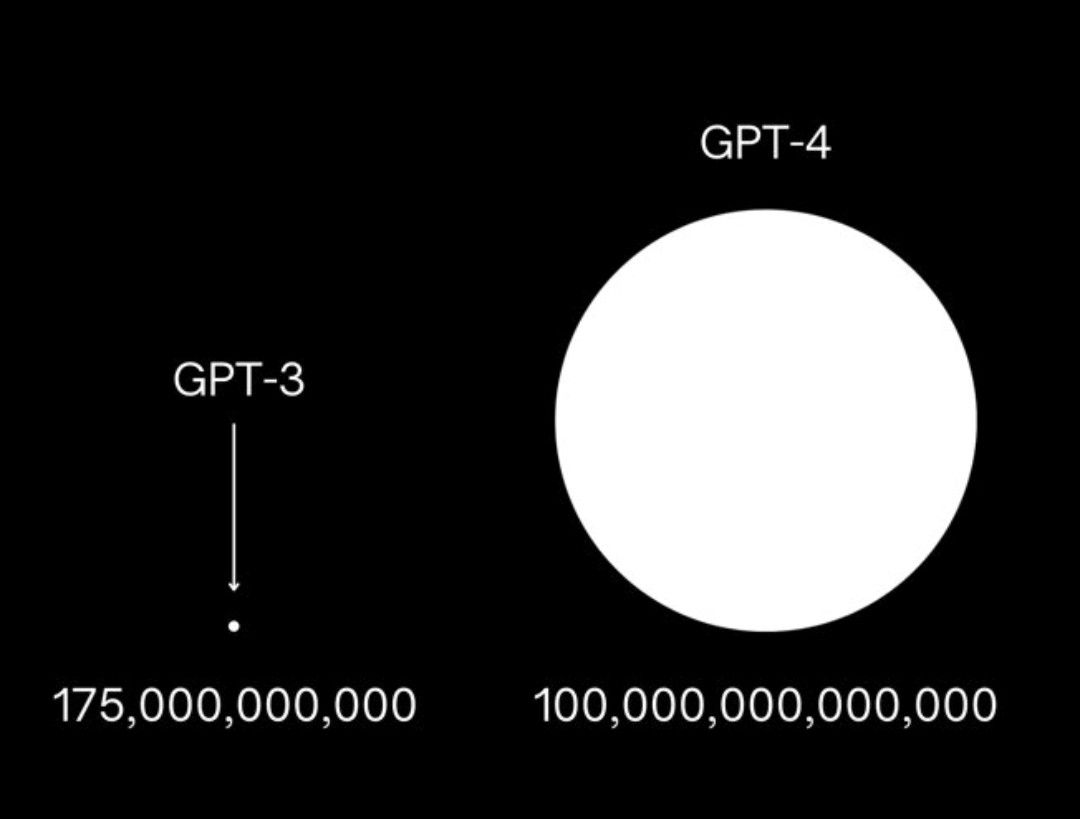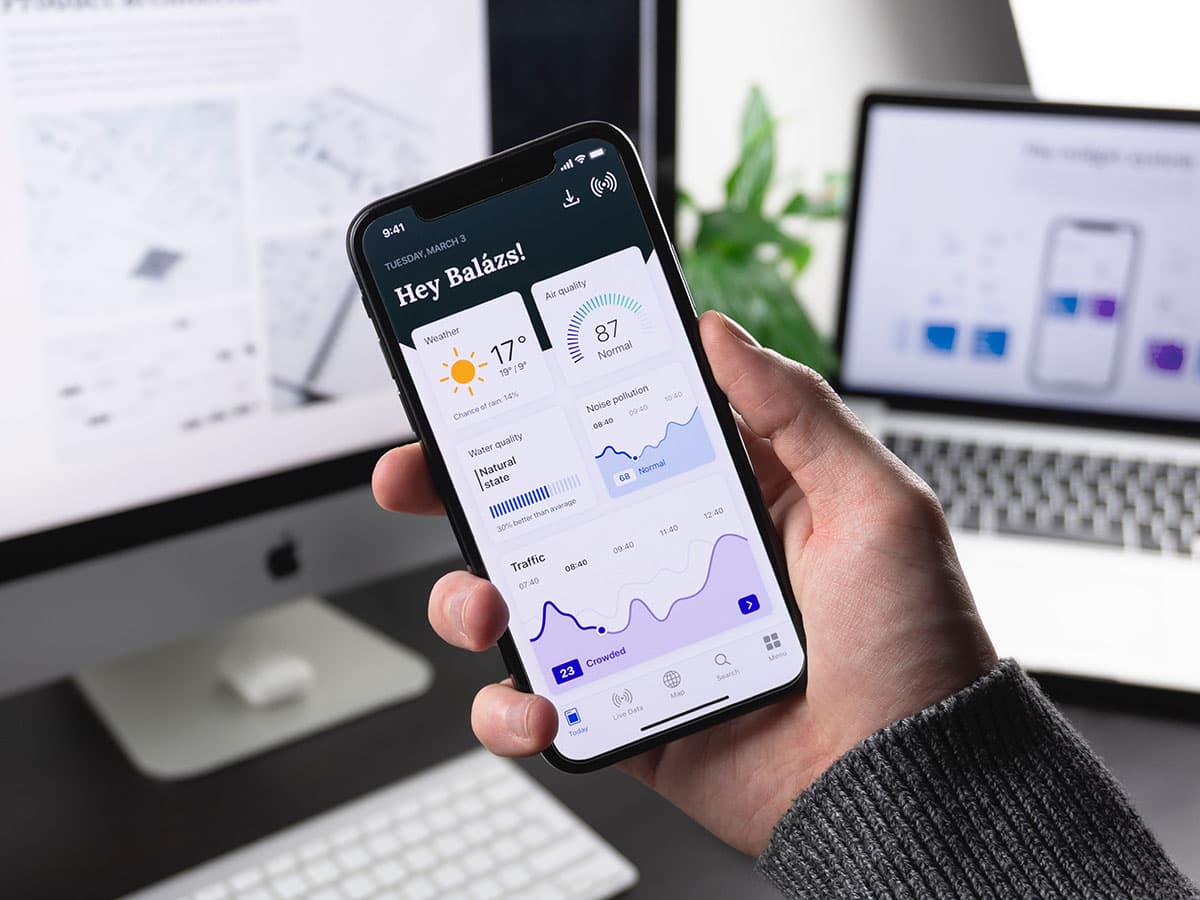A lot of people ask this question; what is ChatGPT? Who will blame them? Absolutely no one simply because there is no harm in satisfying one's curiosity.
The ChatGPT phenomenon has swept the internet waves in the last few months. And it is making many people ask questions about what this AI ChatGPT is all about and how they can use it?
In this blog, we will explore what ChatGPT is and provide clarity on other things around it.
What is ChatGPT?
ChatGPT AI is an artificial intelligence (AI) writing tool that helps businesses automate their conversation and chatbot processes.
It uses a combination of natural language processing and machine learning to generate accurate and relevant responses for customer interactions. Unlike other AI writing tools, ChatGPT allows for a more human-like conversation experience by leveraging its unique combination of natural language processing, semantic analysis, and automated reasoning.
The AI writing tool uses advanced algorithms to understand user inputs and respond appropriately. This makes it possible for businesses to engage with customers in a much more personal and engaging way.
ChatGPT is currently the most advanced AI available, making it the perfect choice for businesses looking to streamline their customer service operations.
How does ChatGPT works?
ChatGPT is an extensive language model trained by OpenAI. It uses a neural network architecture known as a transformer to generate human-like text. The model is trained on a massive dataset of text, which allows it to understand and develop a wide variety of languages.
When given a prompt, such as a question or a statement, the model generates a response by predicting the next word in the sequence. It uses the context of the prompt and the previous words in the generated text to inform its predictions.
Furthermore, the model also incorporates attention mechanisms, allowing it to focus on specific input parts when generating text.
Look at it this way:
ChatGPT is like a robot that can talk and understand what people say. It can answer questions or make a sentence just like you and me.
The robot is taught by showing it lots of different words and sentences, so it can learn how to talk like a human.
When you ask it a question, it uses what it learned to come up with a good answer for you. It's like a magic robot that can read your mind and respond to you!
What are the benefits of using ChatGPT for a business?
There are several benefits business owners can get from using ChatGPT, ranging from automating customer inquiries, to creating content and others. Here are a few things the AI is capable of doing:
1. Automating customer service:
ChatGPT AI can automate customer service tasks, such as answering frequently asked questions and resolving issues.
This can save businesses time and money, as they don't have to hire additional staff to handle these tasks. For instance, a retail business can use ChatGPT AI to provide customer service on their website, allowing customers to get quick answers to their questions without waiting for a representative to become available.
2. Personalizing customer interactions:
ChatGPT AI can generate personalized responses based on the customer's input, which can lead to more positive interactions and increased customer satisfaction. For example, a hotel can use ChatGPT AI to respond to customer inquiries, providing personalized recommendations based on the customer's preferences and past bookings.
3. Generating high-quality content:
Also, ChatGPT AI can be used to generate high-quality content, from blog posts, product descriptions, and ads, to social media posts, website content, and others. This can save business owners a lot of time and resources, as they don't have to spend hours creating content for their brands.
For example, a fashion brand can use ChatGPT AI to generate product descriptions for their clothing items, which can be used on their website and social media platforms to create engagement and stimulate sales.
4. Predictive analytics:
Another great benefit of ChatGPT AI to businesses is that they can use it for predictive analytics, such as analyzing customer feedback and providing insights on improving products or services. A typical example is that a restaurant can use it to analyze customer feedback on their menu items and make changes accordingly to improve their offerings.
As mentioned before, there are several benefits ChatGPT offers to a business depending on the industry they are.
Apart from the listed ones above, they can be beneficial in academic works. Other usages include generating 3D architectural designs, teaching and the likes. These benefits help increase efficiency, improve customer satisfaction, and ultimately help generate more revenue.
ChatGPT at work
A typical way ChatGPT works is by using a process called "prompting." This process involves giving the model a starting point, such as a question or statement, and then allowing it to generate text based on that starting point.
Here's an example of how the process would work and the results.
I told the AI to explain Digital transformation to me in 100 words. When it generated the result, I input another prompt: "can you rewrite it in an engaging tone for a 7-year-old?".
With the results I have ( as seen in the attached image), I can also prompt it to add data or reference, and it goes on until I am satisfied with the result generated.

Will ChatGPT replace humans at their jobs?
ChatGPT and other language models can automate many tasks currently done by humans, such as coding, writing, data entry, customer service, and others. However, they still require human feeling and management to perfect them.
For example, every code generated by AIs needs human input to perfect it and ensure it works smoothly. The same goes for every content generated by AIs; content managers or writers need to edit and always train the AI to write content that passes the correct information and aligns with the company's overall image and story.
Even though a few jobs may be rendered obsolete, AIs like ChatGPT and others will generate more job opportunities in AI development, management, and maintenance fields. For example, a former writer can transition or pivot to be a content strategist that will ensure the content generated aligns with purpose and train the AIs correctly.
Also, a software programmer can take up a job as an AI maintenance developer instead of writing codes and help ensure codes run smoothly and offer more technical guidance.
Summarily, these AI models cannot replace human empathy, creativity, and decision-making, which are unique to humans and essential to using these skills and expertise.
It is implausible that ChatGPT and other AI models will completely replace human jobs but augment and assist humans in their tasks and free up more time for personal development and achieving the company's other goals.
Importantly, it is also crucial to state that AI's impact on job displacement or onboarding will vary by industry and job type.
Potential Dangers of using ChatGPT
As ChatGPT is still relatively new, there have been a few challenges and errors that could be potential dangers for business owners. They include:
1. Misinformation:
ChatGPT and other language models can generate significant amounts of text and solutions, sometimes including fake news, propaganda, and other forms of misinformation. How do businesses handle this? This could be a grave danger to the reputation of companies. However, the potential of an upgraded version of the existing ChatGPT may clarify how to handle this.
2. Bias:
AIs and Robots are innovated and created by humans. Now, these humans may have their biases which could show in the data used in producing them and the results they generate. ChatGPT and other language models can perpetuate and even amplify existing biases in the data they are trained on.
3. Data security:
ChatGPT and other AI models rely on large amounts of data, which can make them vulnerable to breaches and attacks.
4. Unintended consequences:
As AI models are used to make decisions that affect people's lives, businesses will need to consider the potential unintended consequences of their use.
Are they ready for lawsuits and litigation that may arise from the consequences of misinformation generated by AIs? Small businesses that use AI-generated images can be wiped out simply with one lawsuit.
What does the future hold for ChatGPT?

ChatGPT has come to help us a lot in our every day business tasks. It is capable to doing incredible things and it can only get better with update and evolution. Also, it was created with around 175 billion parameters and there is talk that the next version which is ChatGPT4 use around 100 trillion parameters. Incredible!
If ChatGP3 is capable of all these with less than a quarter of the parameters that will be used in ChatGPT4, we can only guess that it will do exceptional things.
Who else can't wait for the future?
Rounding Up: Will ChatGPT revolutionize our world?
ChatGPT and other language models have enormous potentials to help us and increase our effectiveness and productivity in our tasks through automation.
However, it is crucial to consider its limitations and the potential dangers of its use.
No matter how exceptional AIs are, they will still be at the mercy of humans for the next few decades.
Humans have the capacity, knowledge, feelings, and emotions the AIs don't, and it is important to always put AIs and Robots at arm's length to avoid them overhauling us. The world will always need AIs to improve tasks, but the moment it starts revolutionizing the world, humanity will probably be at risk.
ABOUT DX Talks ( Digital Leaders Platform)
DxTalks is an events, media, and consultancy firm specialized in the Digital Transformation, Technology, Blockchain and Web3 field focused on the MENA region.
Byline: Ibrahim Kazeem is a Content Writer and Social Media Manager and he tweets here.
